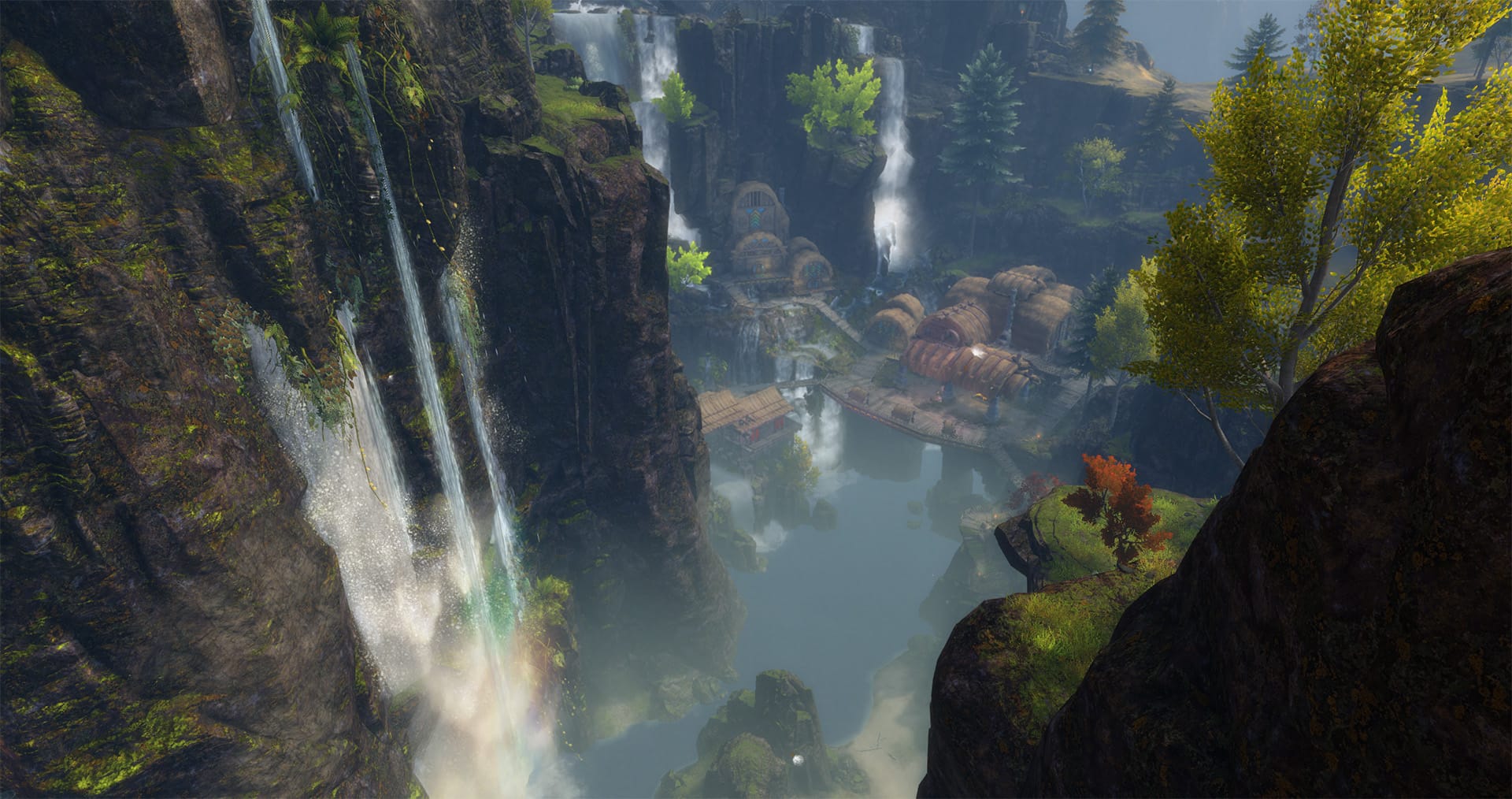It doesn't matter what an MMORPG is.

This week I tried to write an article attempting to define what an MMORPG is after reading "What it means to be an MMORPG" by Bree Royce, who argues that the definition of an MMORPG is fluid and ever-evolving, making it impossible to define it rigidly. In my original post, I tried to be humorous and wrote, “Trying to define it is a fool’s errand. Today, I am that fool.”
Reader, you have no idea how much those words ring true because I wasted the better part of a weekend trying to make the article work. I made 11 different definitions. When I reached attempt #9 I made a formula for something I called the "Social Interaction Possibility Space". In short: it aggregates scores across multiple dimensions of interaction to quantify how social a game is. But in the end it was still subjective because you need to derive your numbers from subjective data. And bullshit in, bullshit out.
The closest I got to something I even remotely agreed with was my final attempt, where I framed it as an "online collaborative storytelling medium in a shared world", a bit like TTRPGs.
"The genre is characterized by collaborative storytelling, shared persistence, and social engagement, fostering meaningful relationships and shared experiences among players."
As an analogy it has its use, but as a definition it falls short. So I started on attempt #12 by reading "Presenting multiple node label support and graph mutability features of the Neo4j Graph Data Science in the Star Wars universe". This kickstarted a two-hour-long side quest trying to take a different approach, then something clicked and I realized I was wrong, and it cannot be done.
After nearly 9 years of hearing people complain about MMORPGs, I thought I had some grasp on what an MMORPG is. I was going to prove just how smart I was. But I wasn't smart, I was arrogant. and because of my arrogance I pissed away a weekend to come to the conclusion that Bree was right and had already handed to me the right answer on a silver platter. That the definition of an MMORPG is dynamic and ever changing.
The question “What is an MMORPG?” is flawed to begin with because it assumes there’s a universal, objective framework for defining a genre that is inherently subjective and deeply influenced by personal experiences, expectations, and cultural context. Like other complex, debated definitions, this question often gets entangled in the values, biases, and agendas of those answering it, rather than revealing an absolute truth.
At the end of the day does it even matter what is and isn't an MMORPG? Does it make a difference if Destiny 2 is objectively an MMORPG? We’re all raiding, running dungeons, competing in PvP matches, and tackling world events. Does the smaller size of Destiny’s zones really disqualify it from being compared to Guild Wars 2, a game where you're raiding, running fractals, competing in structured PvP/WvWvW and participating in open-world events? The DNA is too intertwined to dismiss the game as anything other than an MMORPG to me.
In her article, Bree presented a hierarchical family tree-style graph illustrating the evolution of MMORPGs. While this approach effectively represents historical growth, I personally think for depicting genres I'd prefer a system where games are represented as interconnected nodes, with varying degrees of importance. Each game draws inspiration from a diverse range of other games. And perhaps even indicating how much influence they took from a certain game with varying line width.

And all a genre is, is us drawing imaginary lines around collections of games, attempting to group them together in a way that often doesn’t make sense. For instance, what genre is Portal? It’s a game where you solve puzzles that test your spatial and logical reasoning, along with your reflexes, presented as a first-person shooter. Simply labeling it as a puzzle game wouldn’t accurately describe its essence, and calling it a first-person shooter wouldn’t be incorrect either but would feel wrong. So, all we’re doing is limiting how much a developer can change until we no longer recognize it as an MMORPG. So, all that they can do is add another connection and maybe shift that border a tiny bit in the hopes that the genre perhaps moves enough over time.

I saw a screenshot of a Tumblr post the other day by the user Prokopetz about Dungeons & Dragons, which came to mind while making this post that helped me with some insight.
Imagine a person who only consumes Batman-related media. That is, they only watch movies and TV shows that have Batman in them, only read books that are novelisations of Batman media, only play licensed Batman video games, and so forth. This is not so absurd an idea; Batman-related media is sufficiently popular, varied and widespread that restricting one’s media consumption in this way is completely feasible. However, I trust we can agree that if you actually do this, you will be left with very strange ideas about what popular media looks like.
The next step in this analogy is undestanding that if the only tabletop RPG you’re acquainted with is Dungeons & Dragons, you have the same grasp of the tabletop roleplaying hobby as our hypothetical Batman Guy has of popular media.
This is what many people in the MMORPG space have, and at first I felt tempted to call out World of Warcraft but people have this with any game. These games require so much time investment that most players rarely engage with more than one MMORPG at a time. I'm willing to bet most people don't even play more than one game at a time, period.
If your preferred MMORPG is Guild Wars 2, and you decide to try World of Warcraft, you might find WoW to feel lifeless because there aren’t any instances of 50 players in a zerg engaging in dynamic events. And if your MMORPG of choice is EVE Online, then most themepark MMORPGs might not even register as a real MMORPG to you. Everything is framed by the game you played first or enjoyed the most.
This phenomenon isn't limited to MMORPGs, think of a concept like Cozy Games. There’s a reason why almost everyone creates farming sims because many people believe that’s what cozy games are. However, they’re all mistaken! In my heart, and objectively, the pinnacle of cozy games is Animal Crossing: Wild World for the Nintendo DS. This is an undeniably correct and unquestionable statement.
So, where does that leave me? After all the definitions, the formulae, and mental gymnastics on a level that would get me to the olympics, I’ve come to realize that the question “What is an MMORPG?” was never the right question to begin with. I’m not even certain if I want to categorize it as a genre anymore; it’s more of a concept similar to cozy games. The question assumes a rigid definition for something that thrives on flexibility, subjectivity, and personal experience.
The right question is one that each of us has to answer for ourselves: “What do you get out of MMORPGs?” For some, it’s about the thrill of raiding with friends. For others, it’s the joy of getting lost in an expansive world, or the satisfaction of mastering intricate systems. For me, it’s the relationships, the sense of shared experience and collaborative storytelling in this virtual world we all inhabit. That’s what keeps me coming back to this genre, no matter how much it changes.
MMORPGs aren’t a static genre. They’re a conversation. A long, sprawling, messy conversation between players and developers, between communities and cultures, between what came before and what’s coming next. Trying to nail down a single definition is like trying to define a conversation by picking out one sentence. It misses the point.
Maybe that’s the beauty of MMORPGs. They resist definition because they’re too big, too diverse, too dynamic to be neatly boxed in. And maybe that’s why we keep playing them, not because we agree on what they are, but because they mean something different to each of us.
Or maybe I'm just trying to romanticize this so I feel less bad about having wasted so much time trying to give it a definition anyway.
PS If it doesn't have fishing, it's not an MMORPG.

